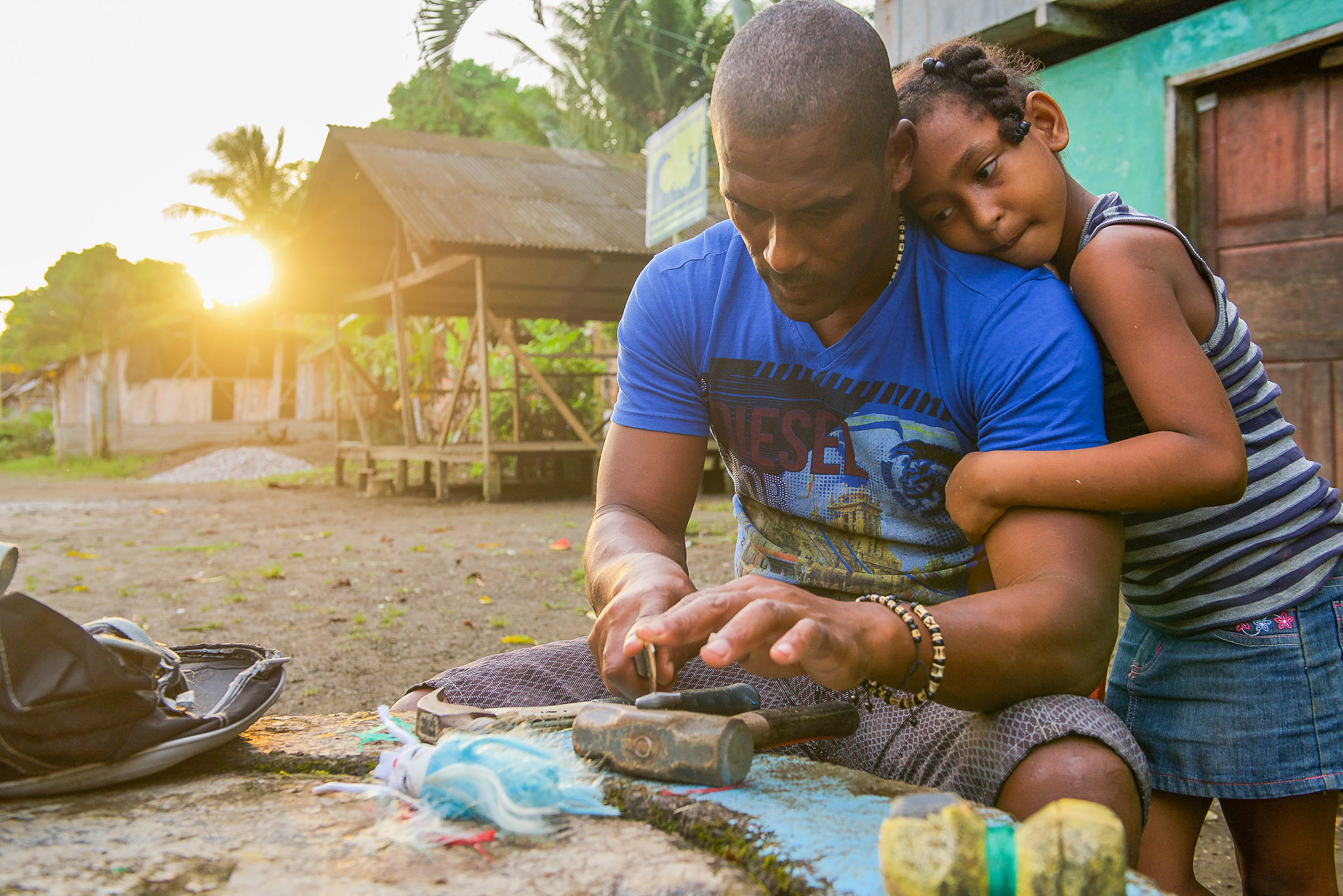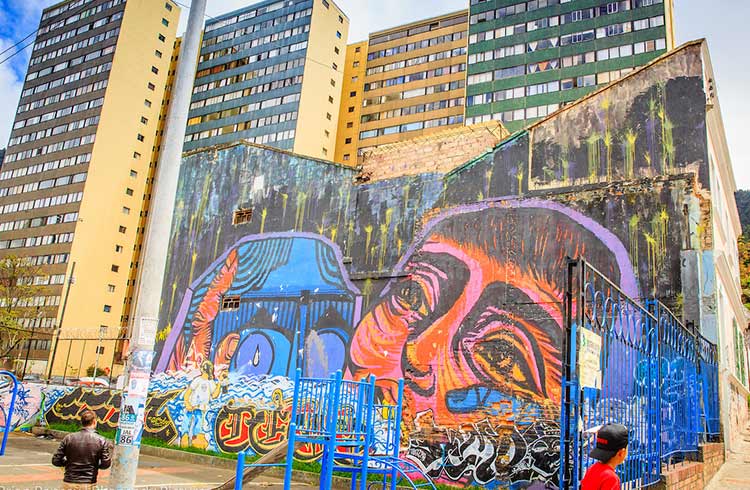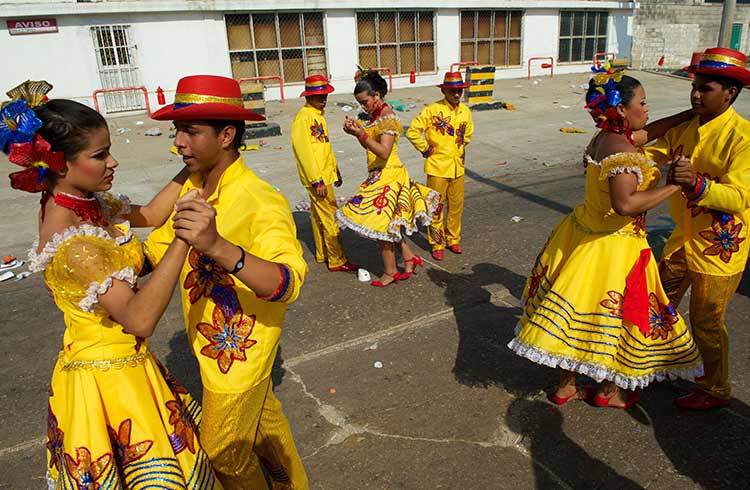How to Stay Healthy in Colombia: Essential Vaccinations
Dodge these diseases by getting the right vaccinations before you travel to Colombia, plus learn the symptoms of altitude sickness to stay healthy on your Colombian adventures.
 Photo © Gregg Bleakney
Photo © Gregg Bleakney
Mosquito and Insect Borne Diseases in Colombia
Yellow Fever
Colombia has been identified as a Yellow Fever endemic country by the World Health Organisation. It is strongly recommended that you are vaccinated against yellow fever before you depart for your trip to Colombia. Aside from protecting yourself from this mosquito borne disease, it is also an entry and exit requirement for a lot of countries. Some airlines will not allow passengers on board unless they can provide proof of vaccination.
Most people do not experience symptoms as the virus incubates over 3 to 6 days however infected persons can experience fever, muscle pain particular in the back area, headache, loss of appetite and vomiting.
Other mosquito-borne illnesses like Dengue, Chikungunya, and Zika are present in Colombia. However there are no vaccinations for these diseases. Although the Colombian Ministry of Health has stated that the Chikungunya and Zika epidemics have both ended and the number of cases has declined, the virus is still active, so always take the necessary precautions and avoid being bitten.
Dengue Fever
Symptoms include high fever, severe headaches, nausea, vomiting, muscle and joint pain, skin rash, and easy bruising, nose bleeds, or bleeding gum.
If you have several of these symptoms, it’s best to see a doctor, rest up, and stay hydrated.
Chikungunya
Chikungunya has similar symptoms to dengue, with the most common being fever and pain in joints, as well as headaches.
Symptoms begin 3-7 days after being bitten by an infected mosquito, and there is no treatment; so resting, staying hydrated, and taking pain medication such as acetaminophen or paracetamol will relieve the pain.
Zika
Symptoms begin 3-12 days after being bitten by an infected mosquito and include headaches, rashes on the face and body, fever, overall discomfort, conjunctivitis, and pain in joints – especially in hands and feet.
There is no specific treatment, only medication to lower the fever and relieve the pain.
Pregnant women and those wanting to conceive should postpone travel to all low-lying areas (below 2,000m/ 6,562ft) as research has shown that a Zika infection can cause microcephaly and Guillain-Barré Syndrome in developing foetuses.
Malaria
All major cities and towns residing at 1,700m (5,577ft) above sea level, as well as Cartagena, Barranquilla, and Santa Marta on the Caribbean coast, including the islands of San Andrés and Providencia, are malaria-free. The disease is widespread in rural areas below 800m so it is recommended to take anti-malarial medication before you travel. There is no risk of malaria in Bogota.
To stay safe and protect yourself from being bitten by an infected mosquito, follow these steps:
- Apply repellent religiously.
- Wear long pants and long sleeves at dusk and dawn.
- Sleep under mosquito nets in high-risk areas.
Always remember mosquitos are especially active in low altitude regions. Check for any updates before you travel to a possibly infected area and read our guide to vaccinations in South America.
Chagas Disease
Also known as American Trypanosomiasis, a parasite Trypanosoma cruzi is spread via the faeces or urine of the blood sucking Triatomine or Kissing Bug once bitten. You can also become infected via the eyes, mouth and a cut or wound. There have also been rare cases of infection via contaminated food and drink.
The disease is common in rural areas esp. those with poor quality buildings made of mud, adobe or thatch. These dwellings which provide the insects an ideal environment to live in, hibernating during the day to come out at night to feed on sleeping humans and animals.
Symptoms can vary from mild swelling, headache, fatigue, fever and rash. However in some people it can be long lasting if left untreated causing heart complications and digestive system issues.
Preventative measures to avoid contracting Chagas are similar to preventing mosquito borne diseases and also avoid sleeping in mud, thatched and adobe style buildings.
Leishmaniasis
Spread by female sandflies infected with Leishmania parasites, Leishmaniasis can present in 3 ways: viscerial (the most serious form which affects internal organs causing swelling of the liver and spleen), cutaneous (skin sores which turn into lesions) and mucocutaneous (destruction of the mucus membranes in the nose, throad and mouth). The disease is more common in rural areas and it is thought that people who keep animals inside their dwelling promote potential infection in humans.
Like Chagas Disease, no vaccination is available but you can prevent bites by following the same precautions used for mosquitos. Also avoid activites at dusk and dawn when sandflies are most active.
Other Diseases
HIV
Although less than 1% of the population is infected with HIV/AIDS, travelers do place themselves at a high risk of getting an STI, such as HIV, if they have unprotected sex with a stranger or engage in the sex tourism industry.
Typhoid
Caused by Salmonella Typhi, typhoid is transmitted via contamnated food and water. The disease incubates over 3 to 5 days and symptoms are similar to many other illnesses such as fever, headache, nausea, muscle ache, constipation or diarrhoea so it is wise to seek medical treatment immediately. Prolonged treatment can lead to serious complications such as internal bleeding, respiratory diseases such as pneumonia, delirium or even death. Vaccination is strongly recommended before you travel and practising good hygiene while you travel will help minimise the risk of becoming infected.
Rabies
Vaccinations are available and it is recommended to get the shot if you are planning to travel into rural areas where rabid dogs are found or wilderness areas where you may be exposed to wild animals and medical facilities are limited. Seek immediate medical treatment if you are bitten or scratched by an animal. If left untreated, it can result in death.
Tetanus
Can pose a potential risk should you cut or graze yourself. Bacteria found in animal faeces or soil can infect the wound, spreading a neurotoxin which impairs your nervous system resulting in spasms and muscle stiffness, the classic signs of tetanus. Not seeking immediate medical treatment can result in blood clots and respiratory failure causing death. If you haven't had a booster shot since the age of 11, you should consider getting one.
Hepatitis A and B
Hepatitis A (liver infection) is a common problem for travelers and should be considered a required immunization. Once you have completed the series of three shots, given 6 months apart, you are considered immune to this for life. It is contracted via contaminated food and water due to poor hygiene.
Hepatitis B affects the liver too, however it is transmitted by contact with body fluids e.g unprotected sex and unsanitary medical equipment. Like Hepatitis A, you can get a 3 shot series of vaccination which makes you immune for life.
Altitude Sickness
Bogotá’s high altitude of 2,640m (8,661ft) might cause some people to feel the effects of altitude sickness.
Symptoms include tiredness, headaches, dizziness, nausea, and shortness of breath. Within a few days, you'll feel fine as long as you stay hydrated, don’t drink alcohol, and avoid anything that requires too much exertion, such as hiking.
To combat the effects of altitude sickness, take it easy, limit your alcohol intake and allow your body to acclimatize.
Related articles
Simple and flexible travel insurance
You can buy at home or while traveling, and claim online from anywhere in the world. With 150+ adventure activities covered and 24/7 emergency assistance.
Get a quote

No Comments